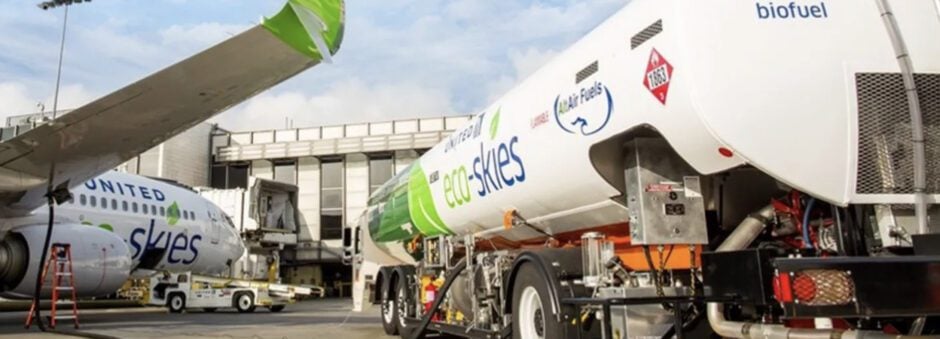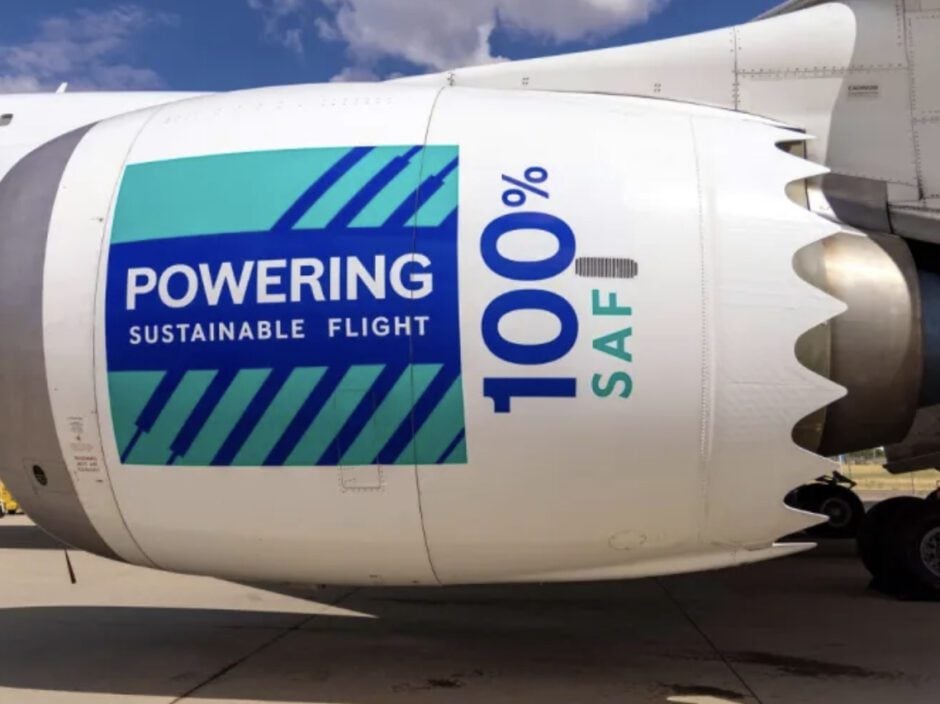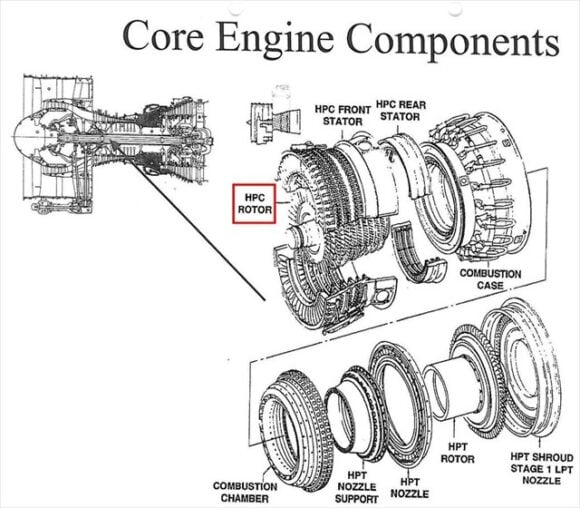
Honeywell UOP revealed today a new process to convert agricultural and forestry waste into renewal fuels, including SAF (“Sustainable Aviation Fuel.”) Deemed a “breakthrough” by the company, the Honeywell UOP (“Universal Oil Products”) bio-crude upgrading process transforms biomass feedstocks into a renewal bio-crude that can be refined into finished fuels on a drop-in basis using existing refining infrastructure.

The Breakthrough Process
This new process has the benefit of producing SAF more inexpensively than current biofuel production. “When combined with the existing Fischer-Tropsch process, our new technology will expand the feedstock options available in the industry to sources that are more plentiful, ultimately helping improve our customers’ ability to produce SAF,” said Ken West, President and CEO of Honeywell Energy and Sustainability Solutions.
The process transforms biomass waste – including saw mill residue, agricultural stocks, and forest trimmings – into a biocrude. That biocrude is shipped to major refineries where it can be converted into SAF, using upgrading modules to existing infrastructure. Because the feedstock in the process is waste, rather than food crops, a new renewal source for SAF becomes feasible. With the benefit of a “drop-in” biomass crude that can be collected on a distributed basis, and send to existing refineries, the process is both efficient and low cost.

The Bottom Line
The benefit of utilizing existing refineries is one of capital – if you don’t need to invest in completely new infrastructure, it is cheaper to turn agricultural waste into SAF. While multiple competing method exist, many that Honeywell markets, this new process represents a cost breakthrough that could be the key to more rapid adoption of SAF and the industry meeting its environmental stewardship goals. With SAF from all sources only about 1% of aviation fuel today, it is imperative to raise production, which this new process enables using materials that are waste and don’t cannibalize food production. If it really works as planned, this will be a breakthrough for both airlines and the environment.
Views: 149
About The Author
Take AirInsight for a Test Flight
7 days full access — premium analysis and the complete data model library — for $1. No commitment.
Start My Test Flight → {
"@context": "https://schema.org",
"@type": "WebPage",
"name": "AirInsight in the Media",
"description": "A curated list of media citations where AirInsight insights are used."
}
{
"@context": "https://schema.org",
"@type": "WebPage",
"name": "AirInsight in the Media",
"description": "A curated list of media citations where AirInsight insights are used."
}



